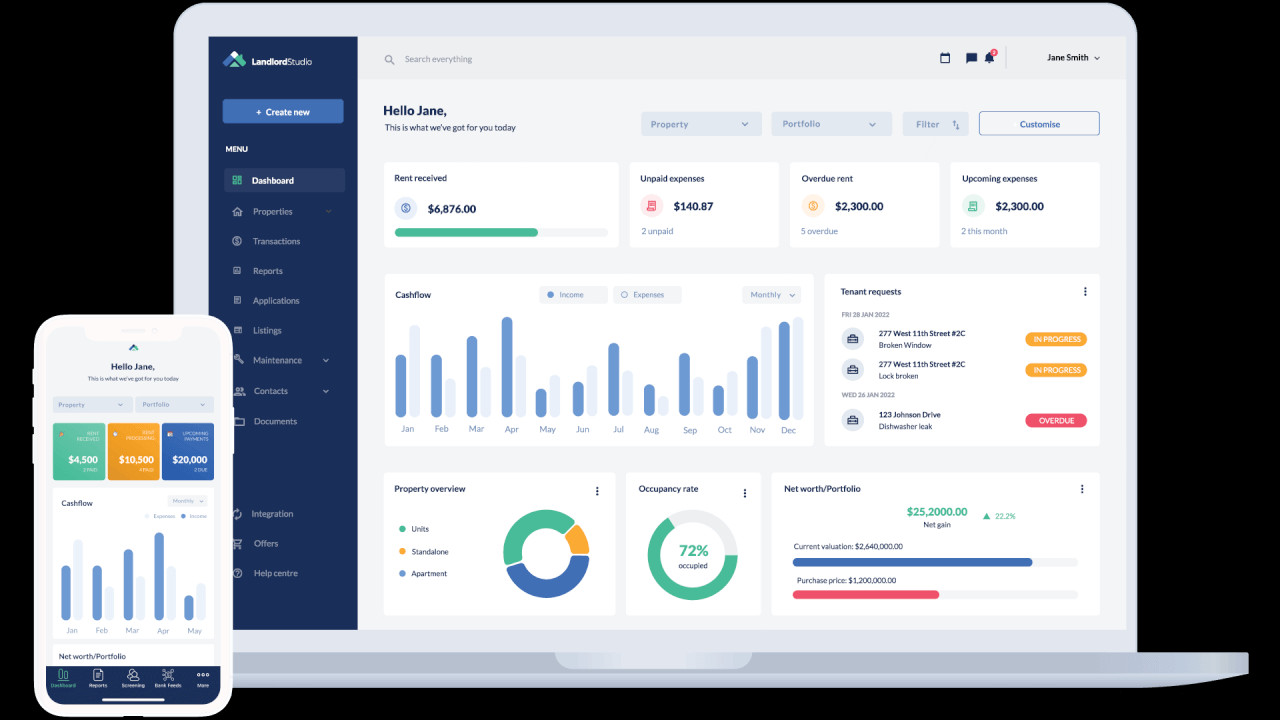How Much Taxes Do You Pay On Rental Income? Figuring out your tax obligations on rental income can be complex, but it’s crucial for financial success as a property owner, and income-partners.net is here to help you navigate this. Understanding rental income taxation, offsetting deductions, and tax strategies are essential for maximizing your returns. Let’s explore how to efficiently manage your rental income taxes, unlocking potential for increased revenue, strategic partnerships, and financial growth in your real estate ventures, focusing on tax planning and property management tips.
1. Understanding Rental Income and Tax Basics
What constitutes rental income, and how is it taxed? Rental income includes all payments received for property use, such as rent, advance payments, and tenant fees. Unless you’re filing as a corporation, like an LLC or S-Corp, this income is taxed at your standard income tax rates, potentially at both state and federal levels. Christanne Wright, a real estate CPA, explains, “Rental income is typically considered ordinary income, subject to federal and state income taxes, and must be reported on your tax return.” Remember that rental income is considered passive income by the IRS, so report it separately from your W-2 income on Schedule E. To help keep up with your taxes, consider using income-partners.net to discover the best strategies for tax savings.
- Key Takeaway: Accurately understanding and reporting all sources of rental income is fundamental to your tax responsibilities.
What Sources of Income Must I Include?
When calculating rental income tax, including several types of income is crucial. Here’s a detailed list:
- Rent Received Over the Tax Year: This includes all standard rental payments collected during the year.
- Advanced Payments of Rent: Any rent paid in advance, regardless of when the rental period occurs.
- Fees from Tenants: This encompasses various fees, such as early termination fees, late fees, and pet fees.
- Non-Refundable Security Deposits: Any portion of a security deposit you keep because of damages or other lease violations.
- Expenses Paid by Tenants: Payments made by tenants that cover expenses typically paid by the landlord.
- Services in Lieu of Rent: If a tenant provides services instead of rent, the fair market value of those services is considered income.
How Are Tax Brackets Determined?
Your marginal tax bracket depends on your filing status and taxable income reported for the year. For example, a single filer in 2024 with $50,000 taxable rental income would fall into the 22% tax bracket. The calculation would break down as follows:
- 10% on the first $11,600: $1,160.
- 12% on income between $11,601 to $47,150 ($35,549): $4,265.88.
- 22% on income between $47,151 to $50,000: $626.78.
In this scenario, the total tax bill would be $6,052.66. To determine your tax bracket and understand how it impacts your rental income, income-partners.net offers tools and resources to guide you.
 Single filer taxable rental income
Single filer taxable rental income
Alt text: Landlord studio dashboard showcasing an example of single filer taxable rental income, emphasizing the importance of accurate financial tracking.
What Are the Rental Income Tax Rates for 2024 and 2023?
Refer to the tables below for the 2024 and 2023 income tax brackets to understand how your rental income is taxed based on your filing status.
2024 Income Tax Brackets (Taxes due April 2025)
| Tax Rate | Single Filers | Married Filing Jointly |
|---|---|---|
| 37% | $609,351+ | $731,201+ |
| 35% | $243,726 – $609,350 | $487,451 – $731,200 |
| 32% | $191,951 – $243,725 | $383,901 – $487,450 |
| 24% | $100,526 – $191,950 | $201,051 – $383,900 |
| 22% | $47,151 – $100,525 | $94,301 – $201,050 |
| 12% | $11,601 – $47,150 | $23,201 – $94,300 |
| 10% | Up to $11,600 | Up to $23,200 |
2023 Income Tax Brackets (Taxes due April 2024)
| Tax Rate | Single Filers | Married Filing Jointly |
|---|---|---|
| 37% | $578,126+ | $693,751+ |
| 35% | $231,251 – $578,125 | $462,501 – $693,750 |
| 32% | $182,101 – $231,250 | $364,201 – $462,500 |
| 24% | $95,376 – $182,100 | $190,751 – $364,200 |
| 22% | $44,726 – $95,375 | $89,451 – $190,750 |
| 12% | $11,001 – $44,725 | $22,001 – $89,450 |
| 10% | Up to $11,000 | Up to $22,000 |
2. Deducting Rental Property Expenses
What expenses can I deduct to lower my taxable rental income? Deductible expenses include advertising, HOA dues, insurance, leasing commissions, mortgage interest, professional fees, property management fees, property taxes, repairs, travel, and utilities. Accurately tracking these expenses is crucial. income-partners.net provides resources for managing and maximizing these deductions.
- Key Takeaway: Maximizing deductible expenses is critical for reducing your overall tax liability.
What Are Common Rental Property Expenses?
When tracking rental property expenses, break them down by property and into specific categories. Common deductible expenses include:
- Advertising and marketing
- HOA dues
- Insurance
- Leasing commissions
- Licenses and permits
- Materials and supplies
- Mortgage interest
- Professional fees (legal and accounting)
- Property management fees
- Property tax
- Repairs and maintenance
- Travel
- Utilities
How Do I Track Income and Expenses Throughout the Year?
Tracking income and expenses in real time is beneficial. Rental accounting solutions, such as Landlord Studio, help digitize receipts, categorize expenses, and keep them updated. Consistent record-keeping pays off, even if using a simple spreadsheet. income-partners.net can help you find the best tools for managing your finances.
3. Calculating Your Rental Income Tax
How do I calculate my rental income tax liability? Here’s an example:
- Total Annual Rental Income: $24,000
- Total Expenses: $15,900
- Taxable Rental Income: $8,100
Referring to the 2024 tax rates, $8,100 falls in the 10% bracket. If this is the only income, the tax is $810. However, if there’s a day job paying $95,000, the total taxable income becomes $103,100, pushing some income into the 22% tax bracket. For more detailed calculations and tax planning, consider using income-partners.net.
- Key Takeaway: Calculating your tax involves subtracting deductible expenses from your rental income to determine your taxable income.
What Are the Tax Rates for Rental Income in 2024?
Review the following table for an example of how rental income is taxed in 2024, depending on the taxable income bracket:
| Tax Rate | Taxable income bracket | Tax owed |
|---|---|---|
| 37% | $578,126 or more | $174,238.25 plus 37% of the amount over $578,125 |
| 35% | $231,251 to $578,125 | $52,832 plus 35% of the amount over $231,250 |
| 32% | $182,101 to $231,250 | $37,104 plus 32% of the amount over $182,100 |
| 24% | $95,376 to $182,100 | $16,290 plus 24% of the amount over $95,375 |
| 22% | $44,726 to $95,375 | $5,147 plus 22% of the amount over $44,725 |
| 12% | $11,001 to $44,725 | $1,100 plus 12% of income over $11,000 |
| 10% | $0 to $11,000 | 10% of taxable income |
4. Leveraging Depreciation to Reduce Taxes
What is depreciation, and how can it lower my tax bill? Depreciation is deducting the value of your property over its useful lifetime, set by the IRS at 27.5 years for residential rentals. It reduces the amount of tax you pay via deductions. Understanding and utilizing depreciation is vital for tax savings. To learn more about depreciation and how it can benefit your tax strategy, income-partners.net is a valuable resource.
- Key Takeaway: Claiming depreciation can significantly lower your taxable income and overall tax liability.
5. Qualified Business Income (QBI) Deduction
What is the QBI deduction, and do I qualify? QBI is a tax break allowing self-employed and small business owners to deduct up to 20% of their business income after depreciation. For 2023, total taxable income must be under $364,200 (married filing jointly) or $182,10 for single filers. Even without being a real estate professional, you can qualify if your rental activities are classified as business activities. income-partners.net can provide insights into qualifying for this deduction.
- Key Takeaway: If eligible, the QBI deduction can provide substantial tax savings by reducing your taxable income.
What Rental Services Constitute Business Activities?
Examples of rental services that constitute business activities include:
- Property management activities
- Tenant screening and selection
- Rent collection
- Maintenance of property
- Listing the property for rent
Activities not included are financial management, finding properties to rent, and time spent traveling to and from the rental property.
6. Reporting Taxable Rental Income and Expenses
What forms do I need to file for rental income taxes? You may need to file several forms, including Schedule E (Form 1040) for income and expenses, Schedule A for personal expenses, Form 4562 for depreciation, and Form 8960 if net investment income tax applies. You may also need to file a 1099 if you paid contractors over $600. Make sure you consult with tax professionals or resources on income-partners.net for the latest guidance on reporting requirements.
- Key Takeaway: Correctly filing all necessary forms is crucial for compliance and maximizing potential deductions.
What Are the Key Tax Forms for Landlords?
Here are some key tax forms landlords need to know:
- Schedule E (Form 1040): Used to report income and rental expenses.
- Schedule A: Used to deduct personal expenses associated with the rental property.
- Form 4562: Used to report depreciation and improvements to the property.
- Form 8960: Used if net investment income tax applies to your rental income.
- Form 1099: Required if you paid contractors over $600 during the tax year.
7. Optimizing Rental Property Accounting
How can I efficiently manage my rental property accounting? Using purpose-built software like Landlord Studio can streamline your accounting, from income and expense tracking to tax reporting. This allows you to customize and generate reports such as the Schedule E 1040 report and supplier expense reports. For further clarification, consult your accountant or CPA, and explore resources on income-partners.net.
- Key Takeaway: Implementing efficient accounting practices simplifies tax preparation and enhances financial oversight.
How Can Landlord Studio Help With Tax Reporting?
Landlord Studio allows you to customize and generate a number of reports such as the Schedule E 1040 report and supplier expense reports, designed to make tax time as simple and stress-free as possible.
 USA Testimonial
USA Testimonial
Alt text: USA Testimonial image highlights customer satisfaction with Landlord Studio, underscoring its efficiency in managing rental property finances and taxes.
8. Real-World Example of Calculating Taxable Rental Income
Let’s consider a detailed example to illustrate how to calculate taxable rental income effectively. Imagine you own a rental property in Austin, TX, and here are your financial details for the year:
-
Gross Rental Income: $30,000
-
Expenses:
- Mortgage Interest: $7,000
- Property Taxes: $3,000
- Insurance: $1,200
- Repairs and Maintenance: $2,000
- Property Management Fees: $2,500
- Advertising: $500
-
Depreciation Expense: $5,000
Here’s how you would calculate your taxable rental income:
- Total Expenses:
- $7,000 (Mortgage Interest) + $3,000 (Property Taxes) + $1,200 (Insurance) + $2,000 (Repairs and Maintenance) + $2,500 (Property Management Fees) + $500 (Advertising) + $5,000 (Depreciation) = $21,200
- Taxable Rental Income:
- $30,000 (Gross Rental Income) – $21,200 (Total Expenses) = $8,800
In this case, your taxable rental income is $8,800. Depending on your overall income and filing status, this amount will be taxed according to the applicable tax bracket. For example, if you are a single filer and this is your only source of income, it would fall within the 10% tax bracket, resulting in a tax liability of $880. Partnering with experts found on income-partners.net can refine these calculations and provide tailored advice.
9. Staying Compliant with Tax Laws
How do I stay updated with changing tax laws? Tax laws and regulations can change frequently. Staying informed ensures you comply with the latest rules and take advantage of any new deductions or credits. Subscribe to IRS updates, consult tax professionals, and regularly check resources like income-partners.net for updates.
- Key Takeaway: Continuously updating your knowledge of tax laws is essential for accurate reporting and optimal tax planning.
Why Is It Important to Stay Informed on Tax Law Changes?
Staying informed on tax law changes is critical for several reasons:
- Compliance: Ensure you meet all legal requirements and avoid penalties.
- Optimization: Take advantage of new deductions and credits to minimize your tax liability.
- Planning: Make informed financial decisions based on current tax regulations.
10. Seeking Professional Advice
When should I consult a tax professional? Consulting a tax professional is advisable if you have complex financial situations, multiple rental properties, or significant changes in your income. A professional can provide personalized advice and ensure you are taking full advantage of all available deductions and credits. Partner with financial advisors through income-partners.net for expert guidance.
- Key Takeaway: Engaging a tax professional ensures you receive tailored advice and optimize your tax strategy.
What Are the Benefits of Working With a Tax Professional?
Here are some of the benefits of working with a tax professional:
- Expertise: Access in-depth knowledge of tax laws and regulations.
- Personalization: Receive advice tailored to your specific financial situation.
- Optimization: Identify and utilize all available deductions and credits.
- Peace of Mind: Ensure accurate reporting and compliance with tax laws.
FAQ: Rental Income Taxes
1. What happens if I don’t report my rental income?
Failing to report rental income can lead to penalties, interest, and even legal action from the IRS. Always accurately report all income to avoid these issues.
2. Can I deduct expenses for a property that wasn’t rented out all year?
Yes, you can deduct expenses for the period the property was available for rent, even if it wasn’t continuously occupied.
3. How does depreciation recapture work?
Depreciation recapture occurs when you sell a rental property for more than its adjusted basis. The previously claimed depreciation is taxed as ordinary income, not as capital gains.
4. What is the difference between repairs and improvements?
Repairs maintain the property’s condition, while improvements enhance its value or extend its life. Repairs are fully deductible in the current year, whereas improvements are depreciated over time.
5. Are travel expenses to my rental property deductible?
Yes, reasonable and necessary travel expenses to manage, repair, or collect rent from your rental property are deductible.
6. How do I handle security deposits in terms of taxes?
Security deposits are not considered income unless you use them to cover damages or unpaid rent. If you return the deposit to the tenant, it is not taxable.
7. Can I deduct mortgage interest on my rental property?
Yes, mortgage interest is a deductible expense for rental properties. You can deduct the interest paid on your mortgage, which reduces your taxable income.
8. What if my rental property generates a loss?
If your rental property generates a loss, you can typically deduct up to $25,000 of the loss against your other income, subject to certain limitations based on your adjusted gross income (AGI).
9. How does passive activity loss limitation affect rental income?
The passive activity loss limitation can restrict the amount of rental losses you can deduct if your AGI is too high. Consult a tax professional to navigate these rules.
10. What are the implications of renting my property for short-term rentals (e.g., Airbnb)?
Short-term rentals can have different tax implications than long-term rentals. Depending on the number of days the property is rented and your involvement, it could be considered a business activity, affecting your deductions and QBI eligibility.
Understanding how much taxes you pay on rental income requires careful planning, accurate record-keeping, and staying informed about tax laws. By leveraging available deductions, understanding depreciation, and potentially qualifying for the QBI deduction, you can optimize your tax strategy. Partnering with experts and utilizing resources like income-partners.net ensures you stay compliant and maximize your financial success.
Ready to explore strategic partnerships and elevate your income? Visit income-partners.net to discover a wealth of opportunities and connect with potential partners who share your vision. Don’t miss out on the chance to build profitable relationships and grow your business.
Address: 1 University Station, Austin, TX 78712, United States
Phone: +1 (512) 471-3434
Website: income-partners.net
